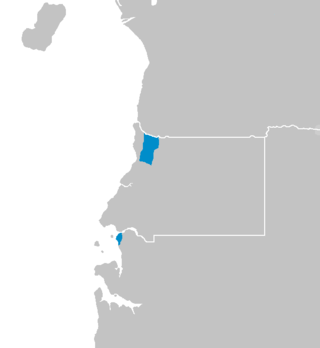Seki language
In this article we will explore the topic of Seki language and its impact on today's society. Seki language has been the subject of interest and debate for years, and its relevance has not diminished over time. In recent decades, we have seen significant advances and research around Seki language, leading to greater understanding and awareness of its importance. Through this article, we will delve into the different aspects surrounding Seki language, from its history and evolution to its influence in different areas of daily life. We hope that this exploration contributes to shedding light on Seki language and its implications in today's world.
| Seki | |
|---|---|
| Sekiyani | |
| Native to | Equatorial Guinea, Gabon |
Native speakers | 12,000 (2001-2007)[1] |
| Language codes | |
| ISO 639-3 | syi |
| Glottolog | seki1238 |
B.21[2] | |
| ELP | Seki |
 | |
Seki, also Baseke, Sheke or Sekiana, is a language indigenous to Equatorial Guinea and Gabon. It had been spoken in villages of Rio Campo and Northern Bata, along the coast, but its native speakers have begun abandoning the language for Spanish, Fang, and Kombe. Can be related to Kako spoken in the East region of Cameroon and some parts of the west of Central African Republic.
Phonology
Consonants
| Labial | Alveolar | Post-alv./ Palatal |
Velar | Labio- velar | ||
|---|---|---|---|---|---|---|
| Nasal | m | n | ɲ | (ŋ) | ||
| Plosive/ Affricate |
voiceless | p | t | t͡ʃ | k | |
| voiced | b | d | (d͡ʒ) | ɡ | ||
| prenasal vl. | ᵐp | ⁿt | ⁿt͡ʃ | ᵑk | ||
| prenasal vd. | ᵐb | ⁿd | ⁿd͡ʒ | ᵑɡ | ᵑɡ͡b | |
| Fricative | voiceless | s | ||||
| voiced | β | (z) | ||||
| Rhotic | r | |||||
| Approximant | l | j | w | |||
- /z, d͡ʒ/ only rarely occur phonemically.
- /ɡ/ may be lenited as in intervocalic positions.
- /ᵑɡ/ can be heard as a nasal when in word-final position, or when followed by /l/.[3][4]
Vowels
| Front | Central | Back | |
|---|---|---|---|
| Close | i | u | |
| Close-mid | e | o | |
| Open-mid | ɛ | ɔ | |
| Open | a |
References
- ^ Seki at Ethnologue (18th ed., 2015) (subscription required)
- ^ Jouni Filip Maho, 2009. New Updated Guthrie List Online
- ^ Ondo-Mébiame, Pierre (1986). Esquisse phonologique et morphologique du seki. Libreville: Université Omar Bongo.
- ^ Echegaray, Carlos González (1952). La clasificación nominal en el baseque. Archivos del Instituto de Estudios Africanos, v. 6, no. 20-23. pp. 73–92.
{{cite book}}: CS1 maint: location (link) CS1 maint: location missing publisher (link)